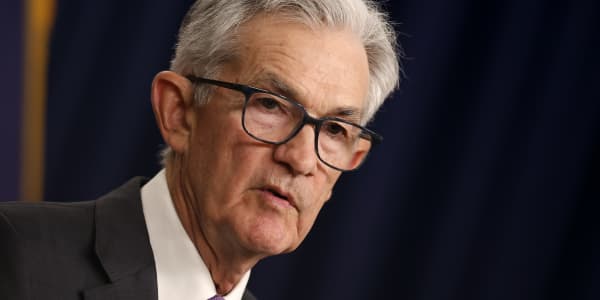This report is from today's CNBC Daily Open, our new, international markets newsletter. CNBC Daily Open brings investors up to speed on everything they need to know, no matter where they are. Like what you see? You can subscribe here.
Markets made fractional moves Monday as banking turmoil, inflation worries and debt ceiling fears persist.
What you need to know today
- Warren Buffett has a warning about the U.S. economy: Consumers are no longer splurging, causing an inventory build-up in the companies that Berkshire Hathaway owns. Hence, Buffett expects his businesses to report lower earnings this year than the last.
- Still, Berkshire's doing well so far: Its first-quarter earnings jumped 12.6% to $8.065 billion. Geico, an auto insurance company that CEO Buffett called his "favorite child," managed to post a profit for the quarter ended March 31 after suffering a $1.9 billion pretax loss last year.
- All three major stock index in the U.S. made fractional moves Monday. European markets mostly traded higher. The pan-European Stoxx 600 added 0.35%, France's CAC 40 Index inched up 0.11% and Italy's FTSE MIB rose 0.28%.
- Oil prices have declined for three consecutive week to date. Analysts think the slide in prices is because of fresh interest rate hikes, which could dampen energy demand, and an unexpected contraction in China's April manufacturing activity. But there are signs prices have hit a bottom.
- PRO As we approach June 1 — the date when the U.S. government potentially runs out of money to pay its debts — Citigroup analysts think investors should be wary of companies that earn high revenue from the U.S. government.
The bottom line
Monday's market moves were lukewarm: The Dow Jones Industrial Average inched up 0.17%, the Nasdaq Composite slipped 0.17% and the S&P 500 was little changed. But that's because the mood was one of anxiety, rather than calm.
Regional banks managed to avoid losses amid renewed fears of banking instability. PacWest Bancorp rose 3.65%, Western Alliance Bancorp eked out a 0.6% gain and Zions Bancorp added 2.1%. Those are reassuring, if not astounding, numbers.
But those numbers have to be put in context. Earlier in the day, PacWest surged nearly 30% after the regional bank announced Friday evening that it was planning to raise capital. So the story on Monday isn't so much of confidence in regional banks, but continued volatility. Indeed, the SPDR S&P Regional Banking ETF (KRE) fell by 2%.
Banking fears brought about by high interest rates, then, still persist. The Federal Reserve's most recent Financial Stability Report, published Monday, confirmed that one of respondents' biggest economic fears is "banking-sector stress." Additionally, the report identified money market funds, stable coins and hedge funds as having higher potential for running into trouble.
Other concerns about the economy, the report said, included "persistent inflation and tighter monetary policy." April's consumer price index report, expected Wednesday, and the producer price index on Thursday will either reinforce or dispel some of those fears.
And then there's the specter of the U.S. defaulting on its debt. In the event that Congress doesn't reach an agreement to raise the ceiling, there would be an "economic catastrophe," U.S. Treasury Secretary Janet Yellen told CNBC Monday. We'll soon find out whether Washington can avert the "financial chaos," in Yellen's words — President Joe Biden meets top lawmakers Tuesday to discuss the issue.
Despite markets' "tepid approach on Monday," then, "a look beneath the surface reveals a bit more agitation than that first glance might reveal," as the Goldman Sachs trading desk puts it. We might just be in the eye of a storm.
Subscribe here to get this report sent directly to your inbox each morning before markets open.




